|
The key to achieve tourism distribution success is not rocket science, but it does take a bit of work. The key is to spread your distribution and risk and not put all your eggs in one basket.
A few years ago I had a client come to me who said he’d lost 45% of his business. The reason: he received 45% of his bookings from one supplier, who decided to go into competition with him. Your online (and offline) visibility is essential so that your potential customers learn about you when they’re planning their holiday. A well thought-through distribution strategy is therefore essential. Successful businesses spread their distribution by selling their products through:
Set specific goals of what you want to achieve and get into the habit of spending a few hours each week – preferably the same day/time - to work ON your business. You will achieve the things you set out to do and build a successful business. If you need help with this, consider getting a coach or join one of our tourism business success programmes. (note: the next Tourism Business Success Programme starts next week on the 29th of August 2019 - register now!)
5 Comments
 When I speak with businesses about training their staff, many struggle with the transient nature of staff in the tourism industry, especially in towns like Queenstown, Te Anau and other places where there's a large number of tourism businesses. Recruiting quality staff is a challenge, and investing in training them can cost a lot. But what is the cost if you don't train them? It doesn't have to be difficult, though. By having good systems in place where you can train them yourself, your business will provide the quality customer experience that you expect. But what about your own training and development? How much time do you spend planning the next few years of your business growth, your product development, marketing trends, distribution etc? I see time and time again that business owners or managers who invest in their own development achieve far greater results than others. Currently, tourism growth is softening. There are many factors that can be attributed to this, from worldwide political situations to economic slowdown. So the more reason to work ON your business and plan for the next few years. If you're interested in growing your business, then check out the new courses below. Over the last 22 years, I have worked with hundreds of tourism businesses and am most happy to have a chat to you if you have any questions about the new Tourism Success Programmes. Registrations are now open (for April/May start) - click on the link below, or go to www.smartraining.co.nz. With the huge amount of options people have when buying your type of product or service, it’s so important to make it really clear why they should buy from you, what value do you bring them and what is the experience going to be like?
Every now and then, ask yourself the questions below. It’s also good to involve your team in this exercise to ensure everyone is on the same page. Here are 5 questions that will help you clarify why people should book you or buy from you:
Till next time, Marijke Coming soon: the new Agri-tourism Success Programme and the new Tourism Business Success Programme. Click here for more info!  Upselling is adding value to a sale by either selling another product or service or a more expensive product. Fast food outlets do this very well: “Do you want fries with that?” and you think, “why not”, and the up-sell is done! It’s about giving customers ideas of what else they can buy. Upselling is a great way to increase revenue, yet many businesses don’t do it. Whether you are a tourism operator (sell them a full day trip instead of a half day, an extra night, a combo or a package), a retailer or a builder, there are always opportunities to up-sell. Up-selling is relatively easy as the customer is already buying your product. All you have to do is to convince them to buy more. There are also ways to up-sell if you are selling a product online. You might have seen on online shopping sites such as amazon.com : ‘customers that bought this product also bought that product’: ‘if you buy two or more products, you get free shipping’. Here are 5 upselling tips: - Identify upselling opportunities - Offer a matching or complementary product - Sign customers up for a loyalty programme - Train your staff the essential up-selling skills and opportunities - Implement the upselling strategies in your business Till next week, Marijke Did you know that women influence 90% of all travel decisions - and close to 90% of all consumer buying decisions as well? (the guys reading this will probably nod…)
Girls like to shop, that’s no secret. We also think differently than men and make buying decisions in different ways men do. A few things to keep in mind when you work on your website content, social media, put together brochures or any other marketing for your business:
Is your marketing meeting these needs? Does your website provide enough detailed information? Does it encourage your customers to communicate with you? Does it say anything about the people working in the business? If you keep women in mind in marketing your business, more will buy or book your product and your business will grow! NOTE: registrations are now open for the 2016 Marketing for Success Programme. Click here for more info! Limited spaces! Till next week, Marijke I was just reading Destination Queenstown’s newsletter and see that several tourism businesses are having their annual locals’ day.
What a great community and marketing initiative! They offer their tourism activity at a heavily reduced rate, and often the money goes to a charity. Why have a locals' day? Well, it's a great initiative that achieves the following:
Till next week! Marijke About five years ago, I bought a state of the art Epson projector. I bought it online and I must say I can’t even remember the name of the online shop.
The projector is still great and working fabulously. Twice a year, I get an email from Linda, their sales person. She asks me if the projector is still working ok, and if there is anything else I need such as a replacement lamp. When she emailed me a couple of weeks ago, I asked her how much such a lamp is and they are not cheap ($ 570!). I said I would think about it as I was very busy and TRENZ was coming up. I then filed away her email. Today, Linda sent me another email, following up on my interest in the replacement lamp. I know I should buy one as a backup but I probably wouldn’t have done it right now if she hadn’t emailed me. As Linda has provided me with such good service all these years, I will be buying the lamp off her. If she hadn’t sent me these emails, there is no way I would have bought the lamp of this anonymous-online-shop- that-I-can’t- even-remember-the-name-of. So, the moral of the story is: keep in touch with your previous customers! There is a good chance they will be buying from you again! Have a great week! Marijke In a week's time, I am off to TRENZ, New Zealand's largest tourism tradeshow. Even though it's the 15th time I am attending it, I always try to improve what I do. At TRENZ, I will be meeting with 50 tourism from all over the world. They are meeting with 50 different tourism businesses. So, it's important to stand out - to provide them with information that they will remember. Here are three elements of getting people to remember what you say. (Of course this applies to all presentations!)
Till next week! Have a great weekend, Marijke
I’ve just spent a few weeks in Holland on family matters. A busy time, but I did manage to fit in a little bit of retail therapy (the sales were on)!
I’d like to share a shopping experience of good customer service, follow up and marketing practice that you can use for your own marketing. 1. My sister and law Amanda and I walked into this nice shoe shop. As we walked to the shoe racks, a sales lady came up and asked if we wanted a cup of coffee. We said yes and a few minutes later a steaming cup of coffee arrived. (this made us feel good on a cold winter’s day – great service and a bit of wow factor). 2. We carried along trying on shoes and boots and both ended up buying 2 pairs. Upon check out, they had a good pitch why we should also buy this very special shoe cream that would protect the shoes. (This is a good upselling strategy – what else can you sell your customers?) 3. After we paid for our shoes, they asked if we wanted to go in the draw to get our money back. Who would say no? We put our names and email addresses on a list. (Here, they’re building their database so they can stay in touch). 4. The next day, we received an email with a 5 Euro gift voucher for our next purchase and additional sale reductions. (This would encourage you to go back and buy more, or buy shoes there again the next time). 5. Several days later, we received another email with the new collection shoes. Great follow up! As a customer (and marketer), I find this impressive. It’s not rocket science, and not difficult to do. What it does do is create a very pleasant shopping experience and an incentive to come back… I will, the next time I’m in Holland! So, what can you do to create that great customer experience and keep in touch with them? I’m back, so till next week! Marijke It is said that we are exposed to over 3,000 messages a day (through emails, videos, tv, radio, internet, signs, advertising, etc. etc.)
It is amazing how most of them you don’t even notice – unless it is something we’re looking for. Think about the messages in the last few days that you remember . There will probably be only be a few that you remember. These are often the messages that go viral, that are funny or interesting enough that people will pass them on. Your customers won’t remember your message unless you can get it to ‘stick’. Here are 4 few ways to make your message stick: · Don’t overload people with information – keep it simple! That’s what I try to do with these weekly tips – just 1 useful (well, hopefully!) tip a week. · Make it personal, create that ‘emotional connection’. For example, fundraisers for third world charities often focus on 1 child and name him/her too, rather than on the millions of hungry people. · Tell a story – people tend to remember stories rather than features. Case studies are great too or how a customer has been transformed or benefited by your product/service. Ensure your story is credible! The story I wrote about ‘DIY Marketing Real Estate’ was read by a large number of people! · Surprise them! If you can provide people with something surprising, funny, or cute they tend to remember it more. These messages tend to get forwarded and go viral. So, when you are writing a newsletter, blog, website content or advertising copy, keep these things in mind! Till next week, Marijke Well, I’ve done it! It’s sold!
I set a goal to sell my Commercial unit by the end of November and I’ve achieved that goal. I actually had an offer within two weeks, it’s just taken a little while to finalise ‘the deal’! How did the buyer find out about the unit being on the market? This marketing tip database! It’s a list of hundreds of small to medium sized businesses with many of them the target market for the unit. So whenever your market a property or a product, decide who your ideal customer would be and where you can find them. It’s no use advertising in newspapers and other mass media as you will pay for targeting ‘everyone’ (unless you want to reach ‘everyone’). Try to be a bit more creative than that! The result for me was that I had several high quality potential buyers! The other marketing activities I carried out were: - Developed a nice looking flyer and distributed around the area - Set up a page on my website with detailed information about the unit a potential buyer needed with nice photos etc. I had a domain name www.unitforsale.co.nz pointing directly at that page. This way, I could measure how many views that domain had too. - A FOR SALE sign on the building with my phone number and the www.unitforsale.co.nz website - Listing on Trademe (this was the most expensive part at $ 399) What were the advantages for the buyer? - The feedback I’ve had is that buyers prefer dealing with the owner of the property as they know the property best! - A much better price as no commission was involved. The next time I’m selling a property, I will do the marketing again myself! Till next week, Marijke After last week's post on marketing my commercial unit myself, I received many emails with tips and encouragement. Thanks for that!
Readers commented that they prefer dealing with owners of property directly as they know the property best. I know this is not everyone's thing and a lot of real estate agents do a great job, but in my case I think this is working as I can spend time with interested parties and provide good service! Someone said it's useful to have an open home as people like the structured approach. Great idea! I will plan some in the next couple of weeks! Here are a few other marketing activities I've carried out in the last week: - Registered www.unitforsale.co.nz. This website address links to the page on this website with information on the unit. I have added more photos and information to it. Having a specific website address for a marketing campaing enables me to track (through Google Analytics) how many people view this page. - New photos photos on Trademe listing so it stays 'fresh'. - I'm having 250 flyers printed that will be distributed to my target market next week. - I have shown a handful of interested parties the unit (and there are a few more in the pipeline, and hopefully one of them will be a buyer!). The majority of these people are exactly the type of people that would love living and working here. Some are overseas for part of the year and want a 'pied a terre' in Queenstown that requires no maintenance. So, it's been an exciting journey in just the first week and a half! I'll keep you posted. And if you know of anyone that is looking for a unit like this one (in near-new condition), please email them the link www.unitforsale.co.nz . Registrations now open for the 2014/15 Marketing for Success Programme. Click here for info! Till next week, Marijke Whether you sell a tourism activity, a dining experience, gardening services or accommodation packages, you can package these up to be the perfect gift for specific types of people!
What you need to do is the following: - Identify your different target markets (customer groups), so your customer can identify with these, for example : o Gift ideas for mum o Gift ideas for dad o Gift ideas for the family o Gift ideas for girlfriend o Gift ideas for teenager o Gift ideas for grandparents o Gift ideas for couple o Gift ideas for adrenalin-seeker o Gift ideas for staff o Gift ideas for ??? - Then, for each customer group that you can cater for, list the options you offer and a buy now or book now link to the gift voucher. It’s about making it simple for people to book/buy gift vouchers for mum, dad, or someone with a particular interest! Make the expiration date 1 year from the date of purchase. You can always offer a special deal if they buy the voucher before a certain date, or buy multiple vouchers. Another fact about gift vouchers is that a percentage (they say up to 25%!!) never get redeemed! Till next week, Marijke The other day I walked past a clothes shop. Now I do like a good sale so I went in as they had rack after rack of clothes on sale.
They had grouped everything by colour, not by size. It looked very nice on the racks, all the blues together, all the pinks all the yellows etc. But do you think it was easy to find anything in my size? In order to find the correct size, I had to go through all the clothes to find my size. As I didn’t have a lot of time, and frankly, I couldn’t be bothered looking at every tag, I gave up and walked out without having bought anything. If they would have grouped the clothes by size, I could quickly have seen if there was anything to my liking and I quite likely would have bought something. So, what ‘s the lesson here? If you offer a range of options to your clients, group them by type of client. Say one of your customer groups are families, group all the products you offer that are suitable for families in one brochure and on one page on your website. This way, you make it easy for them to find everything in one place and they’re more likely to book! So, don’t find customers for your products, find products for your customers and have a think about how this could apply to your business. (I did end up buying something else in another shop where it was all grouped by size :) Only took me 5 minutes! Till next week, Marijke We've been doing a bit of travelling in the last few weeks and it reminded me what makes customers buy more.
Here are a few observations: - Customers buy 48% more if there is an emotional connection. This means that if you make your customers feel important and comfortable right from the start, they'll spend more and stay longer. - You don't remember what people said, but you do remember how the made you feel. What do you or your staff do to go the extra mile for your customer? I know this sounds like a cliché, but it is SO important you hire the right staff and train them well in customer service. - When you analyse bad reviews on sites such as Tripadvisor, it usually starts with a bad initial first contact, like being ignored when you a arrive, or a bad handling of a complaint. Ensure you (and your staff) control these situations. - In our Marketing for Success Programme (the next one starts in July), one of the main areas we look at is the Customer Experience, as this is what it's all about. We all go to our favourite restaurants and hotels because of the way these places make us feel and the way we are treated. Successful businesses get the experience right. We have had some great experiences at certain hotels, which made us stay an extra night. - When was the last time you were a customer in your own business? Do test your own product regularly so you can improve the experience for your customers! Till next week, Marijke Don't miss the next Marketing for Success Programme (Starting July 2014), there are a few spaces available so don't hesitate if you'd like to achieve your personal goals and business goals. To read about the current programme, go to: http://www.smartraining.co.nz/testimonials.html I’ve been keeping an eye of what marketing tactics are being used out there. The ads that seem to go viral are the cute ones and the ones that make you smile, ie happy! And when something goes viral, it means lots of free publicity for your product or service. Here are 3 examples: Make them laugh! For the Marketing for Success Programme we run, I did some research on the type of ads that are the most popular. Looking at car commercials, one of the most popular ones is the one from VW that got millions of views, way more than the boring ones. All you see is people laughing! Nothing to do with the car, it’s about. Have a look: Make them feel happy! You’ve probably heard the song 'Happy' by Pharrell Williams. Musically, it’s not that great, but it’s had nearly 260 million views because it makes people happy! Hundreds of people have made their own “Happy” video and posted them on Youtube. Puppies, other animals & kids What else makes people smile and feel happy? Puppies & little kids! As some of you may be aware, I have a puppy (named Jessi). She’s not that small anymore now: 6 months. But when I take her for a walk, EVERYONE smiles. Puppies just make people happy. It’s quite amazing .. and nice! Today I met with Melanie and Rex who operate a lovely Boutique B&B in Clyde, Hartley Homestead www.hartleyhomestead.co.nz . We were talking about their positive reviews on Tripadvisor, what people particularly enjoyed about their accommodation, and how so many guests mention their dog Mollie. And do you remember the 'Charlie Bit Me' video with over 600 million views? (if not, check it out on Youtube) So, how could you apply this to your business to encourage people to spread your message (viral marketing)?
You could post videos or photos relating to your business that make people feel good & happy! Animals, kids, people laughing, people doing silly things. It works! Brainstorm ideas with your staff - you'll be amazed what they come up with! Have fun & be happy :) If you’d like to achieve your goals and get ideas and support to do this, join us on the next Marketing for Success Programme, starting in July. Registrations now open! It’s a lot of fun too! Go to www.smartraining.co.nz for more info & testimonials. Have a great week, Marijke Note: I will be on leave for a couple of weeks, so sorry, no Weekly Marketing for the next 2 weeks! Did you know that women influence 90% of all travel decisions - and close to 90% of all consumer buying decisions as well… (the guys reading this will probably nod…)
Girls like to shop, that’s no secret. We also think differently than men and make buying decisions in different ways men do. A few things to remember: Human connections are the key to attracting women to your product or service. They communicate to forge relationships based on mutual values and interests. Avoid over-automation (i.e. forms etc), focus on one-on-one experiences and facilitate story telling. Women like detailed information to absorb & digest. Women use smart shopping skills and do a lot of research before buying. The pre-purchase process is much more important to women than it is to men. Create a culture committed to helping customers determine the best choice, not the quickest sale. Women also comparison shop. They gather data through reading and research, and compare your product against competitors. Women set priorities according to the needs of those most dear to them, so identify ways they can support family members with purchases. Ask yourself: Is your marketing meeting those needs? Does your website provide enough detailed information? Does it encourage your customers to communicate with you? Does it say anything about the people working in the business? If not, do something about it! Have a great week, Marijke Last week, I flew back to NZ through Dubai. It's a large busy airport with many eating outlets.
There was a young man (see pic above) who was trying to get people to come to the restaurant he works for, located one floor above - accessible by elevator only. Not the greatest location... The way he was trying to get people to come to the restaurant was as follows: He had a big smile :) and held an ipad with great photos of the food they offered. He walked up to us and you couldn't help but look at the appealing food photos on the i-pad he was holding. As he talked, he flicked through the photos. A simple but very effective way to sell! An image says more than 1,000 words, and combined with a great smile, he managed to get a lot of people through the door! Is there a way you could use this tool for your business? If you have a restaurant with someone standing outside to attract customers (like they do here in Queenstown), this would be a great way to interact with people - rather than just stand there and smile. If you have another type of business and you have an i-pad (or smartphone with you), why not load some great images or a brief presentation? So when people ask you what you do, you can show them! Till next week, Marijke There are many reasons potential customers may not be buying your product or service right now.
That doesn't mean they don't like it, they may just be looking around and may not be ready to buy. They may not have the money right now or the time. Even if they don’t buy from you now… you'd like them to buy from you eventually, right? Assuming you're targeting the right audience for what you're selling, a percentage of them will buy or book eventually, IF they don't forget about you! So, what can you do to keep in touch with them? Some businesses do it well. For example Dell computers. Every month, I find a leaflet in my PO Box with their latest computer deals. I usually throw it away, but every couple of years I do need a new laptop. So, then the leaflet arrives in my PO Box that month, I look at it! When (or if) you eventually buy a PC from them, you get regular emails newsletters and specials from them, making it very easy for you to buy the products! Dell has done this consistently for many years, resulting in becoming one of the largest personal computer companies in the world (listed number 51 on the Fortune 500 list). They only market directly to their customers, through their websites, email marketing, direct mail and social media. So, don’t give up on people who enquire but don’t buy or book right now. Encourage them to sign up for your mailing list or encourage them to like you on Facebook, Twitter or any other social media you use. Then, keep in touch with them by providing them information that is relevant to THEM! (specials, news, funny stories, videos, photos, anything that might be of interest to them!) They say it takes 5 or 6 'contacts' before a potential customer takes action and buys something from you. So, what do you do to keep in touch with your potential & existing customers? Make a plan and stick to it! The result may surprise you! Till next week, Marijke |
Categories
All
Archives
September 2021
AuthorMarijke Dunselman. Click here to read more about us! |

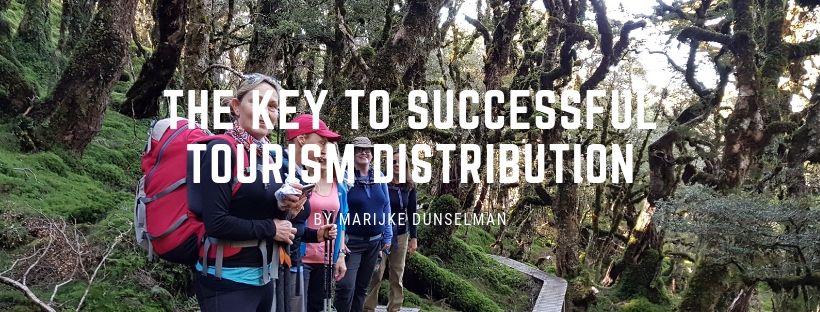
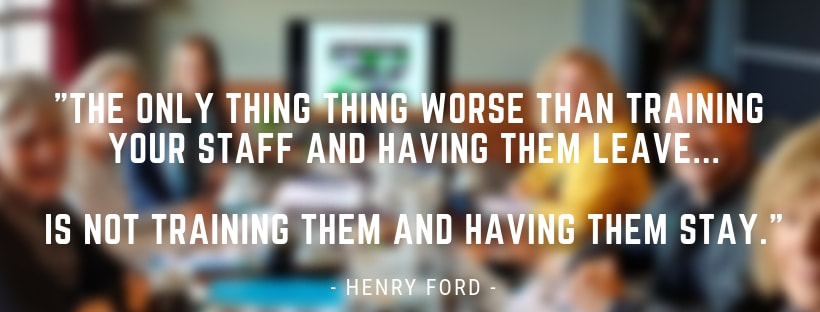

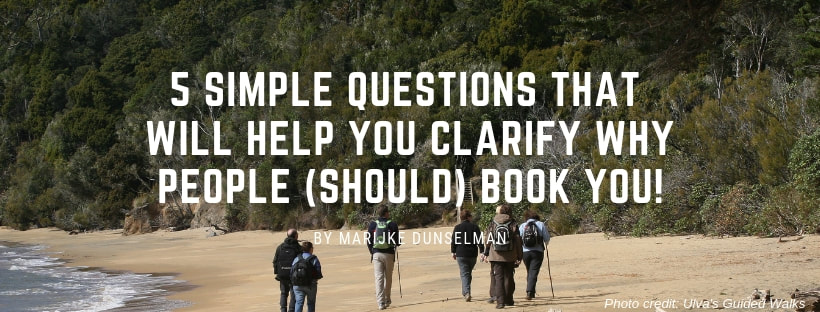







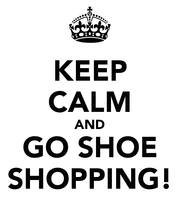

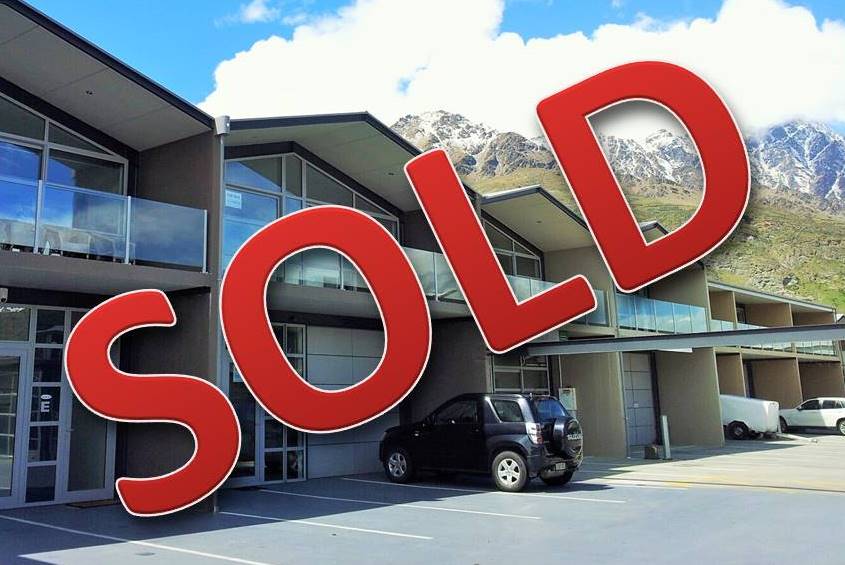
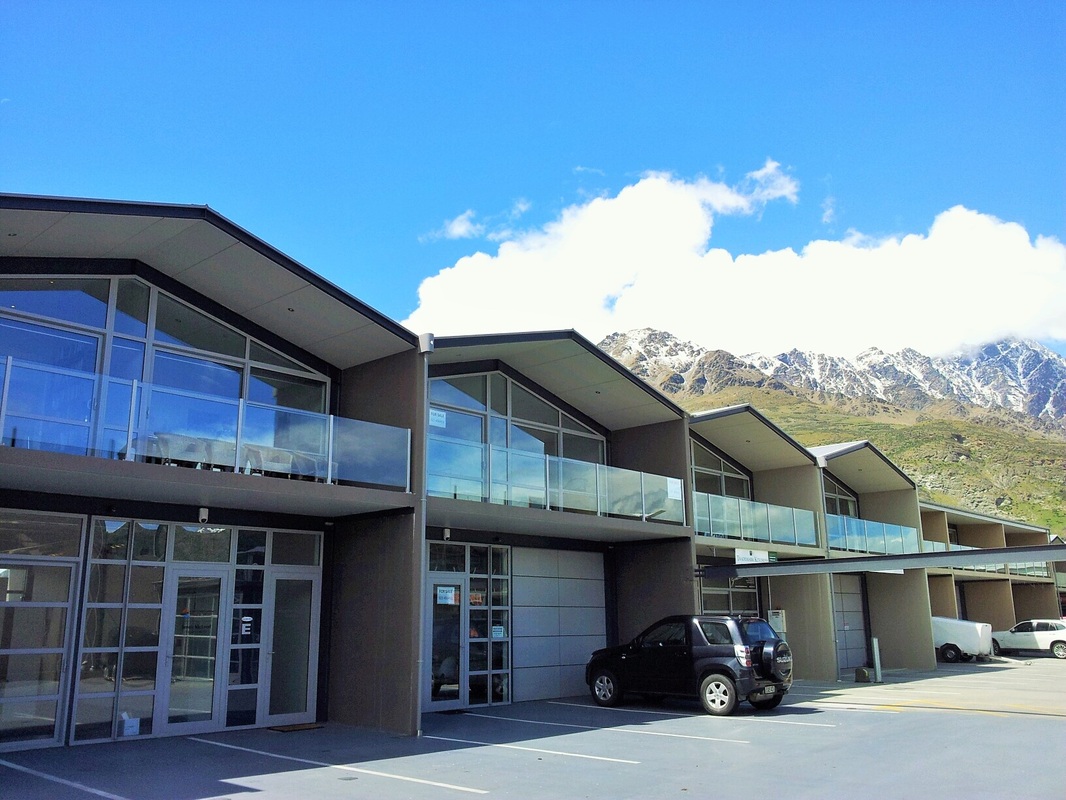


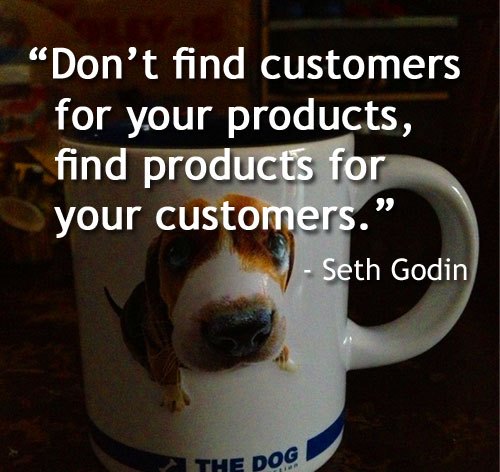



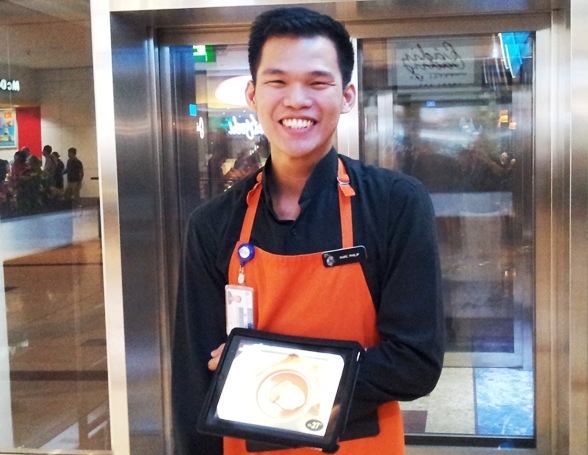

 RSS Feed
RSS Feed


